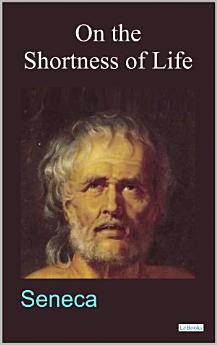On the Shortness of Life
Tungkol sa ebook na ito
Since its composition in the 1st century AD, On the Shortness of Life has remained a powerful meditation on time management and personal fulfillment. Its insights into the fleeting nature of existence and the dangers of external preoccupations continue to resonate with modern readers. Seneca's reflections challenge individuals to prioritize what truly matters, urging them to live with purpose rather than be consumed by the illusions of busyness and social expectation.
The enduring relevance of the work lies in its call for intentional living and the rejection of superficial distractions. By examining the balance between duty, pleasure, and philosophical contemplation, Seneca invites readers to reclaim their time and shape their own destinies. His work serves as a timeless guide to self-awareness and the disciplined pursuit of a meaningful existence.
Mga rating at review
Tungkol sa may-akda
Lucius Annaeus Seneca was a Roman philosopher, statesman, and playwright, widely recognized as one of the most influential figures in Stoic philosophy. Born in Corduba, Hispania (modern-day Córdoba, Spain), and later raised in Rome, Seneca is known for his writings on ethics, resilience, and the pursuit of virtue in the face of adversity. Although he played a significant role in the political sphere as an advisor to Emperor Nero, his philosophical legacy has endured through his essays, letters, and tragedies.
Seneca's career was marked by both political prominence and philosophical depth. He served as an advisor to Emperor Nero, initially guiding him towards moderate governance. However, as Nero's rule became increasingly despotic, Seneca withdrew from public life and focused on his writing. His philosophical works, including Letters to Lucilius, On the Shortness of Life, and On Anger, explore themes of virtue, mortality, and inner peace, providing guidance on how to live a meaningful life amidst uncertainty.
Seneca's influence on Western thought is profound. His writings have shaped philosophical discourse for centuries, impacting thinkers such as Michel de Montaigne, René Descartes, and modern Stoic practitioners. His emphasis on rationality, emotional control, and resilience continues to resonate in contemporary self-improvement and leadership philosophy.
His concept of memento mori—the reminder of death's inevitability—encouraged individuals to live with purpose and mindfulness. Many of his reflections on ethics and self-mastery remain relevant in discussions about mental strength, leadership, and personal growth.








